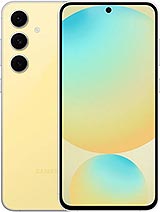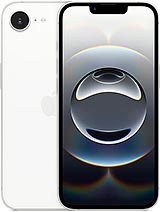iQOO 13 alternatives
Tap above to see alternatives.
iQOO Z10 alternatives
Tap above to see alternatives.
2x4.32 GHz Oryon V2 Phoenix L
6x3.53 GHz Oryon V2 Phoenix M
1x2.5 GHz Cortex-A720
3x2.4 GHz Cortex-A720
4x1.8 GHz Cortex-A520
16GB 512GB (UFS 4.0)
8GB 256GB (UFS 2.2)
12GB 256GB (UFS 2.2)
f/1.9, 23mm (wide), 1/1.56", 1.0µm, PDAF, OIS
50 MP
f/1.9, 50mm (telephoto), 1/2.93", 0.6µm, PDAF, OIS, 2x optical zoom
50 MP
f/2.0, 15mm (ultrawide), 1/2.76", 0.64µm, AF
f/1.8, (wide), 1/1.95", 0.8µm, PDAF, OIS
2 MP
f/2.4, (depth)
4K@24/30/60fps
1080p@30/60/120/240fps
1080p@30/60fps
f/2.5, 28mm (wide), 1/3.15", 0.7µm
f/2.0, (wide)
1080p@30/60fps
SIM1: Nano, SIM2: Nano
SIM1: Nano, SIM2: Nano
FDD: N1, N3, N5, N7, N8, N20, N28
TDD: N38, N40, N41, N77, N78
FDD: N1, N3, N5, N8, N28
TDD: N38, N40, N41, N77, N78
FDD: N1, N3, N5, N7, N8, N20, N28
TDD: N38, N40, N41, N77, N78
FDD: N1, N3, N5, N8, N28
TDD: N38, N40, N41, N77, N78
In this comparison, the iQOO 13 with the Qualcomm Snapdragon 8 Elite (3nm) performs better than the iQOO Z10 with the Qualcomm Snapdragon 7s Gen 3 (4nm), thanks to its more efficient chipset.
The iQOO 13 offers 4 years of OS updates, while the iQOO Z10 provides 2 years. When it comes to security updates, iQOO 13 leads with 5 years of support.
Both phones feature AMOLED displays. Moreover, it offers a higher 144 Hz refresh rate for smoother scrolling. iQOO Z10 also has a brighter display with 5000 nits, improving outdoor visibility. Notably, iQOO 13 has a higher resolution display, resulting in sharper visuals.
iQOO Z10 has a larger 7300 mAh battery for longer usage. iQOO 13 supports faster wired charging at 120W.
iQOO 13 offers better water and dust resistance with an IP68 rating.












